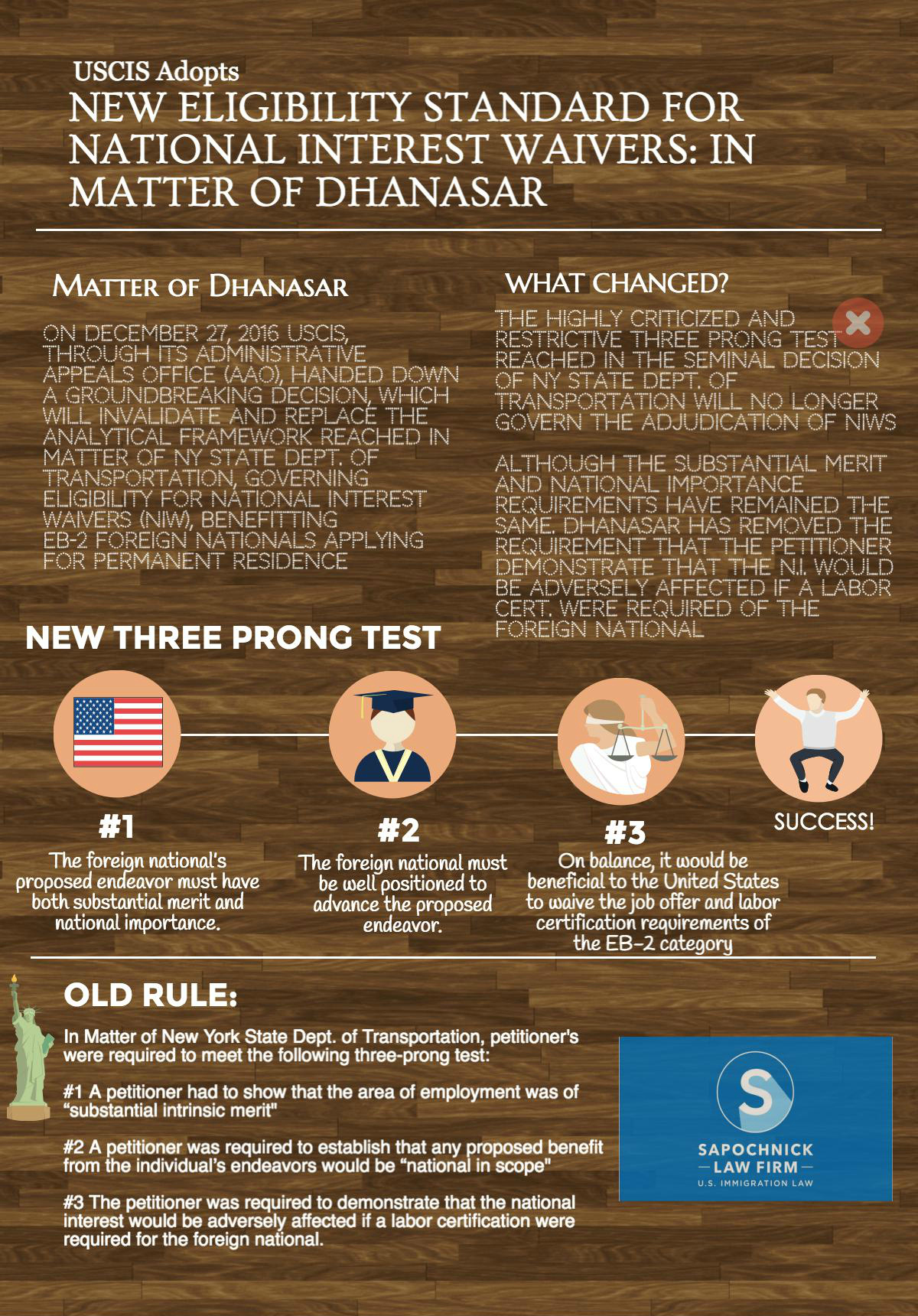On December 27, 2016 in Matter of Dhanasar, 26 I&N Dec. 884 (AAO 2016) the USCIS Administrative Appeals Office (AAO) handed down a groundbreaking decision which has changed the analytical framework for determining eligibility of national interest waivers. This new decision will affect foreign nationals who are pursuing a green card based on employment in the EB-2 category, and who are eligible for a “national interest waiver.”
The national interest waiver is a discretionary waiver of the job offer and labor certification requirement made possible by subparagraph (A) of section 203(b)(2) of the Immigration and Nationality Act. This section of the INA states that the Secretary may, when it deems it to be in the national interest of the United States, “waive the requirements of subparagraph (A) that an alien’s services in the sciences, arts, professions, or business be sought by an employer in the United States.” In addition to meeting a three-prong test of eligibility, to obtain a national interest waiver, the foreign national must be a member of a profession holding advanced degrees or their equivalent or prove that “because of their exceptional ability in the sciences, arts, or business they will substantially benefit prospectively the national economy, cultural or educational interests, or welfare of the United States.”
Without this discretionary waiver, EB-2 applications must be accompanied by a labor certification and their employer must go through the process of advertising the position to prove to immigration that there are no other applicants who are qualified, willing, and able to fill the position that the foreign national is expected to fill. Employers must also meet prevailing wage requirements as established by law. Establishing the national interest waiver in other words made it easier for qualifying foreign nationals in the EB-2 category to skip the job offer and labor certification requirement, streamlining their path to permanent residency.
 Visa Lawyer Blog
Visa Lawyer Blog









